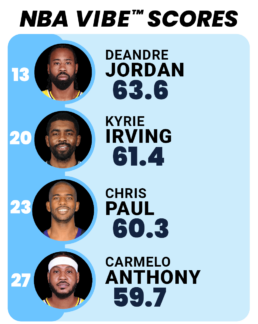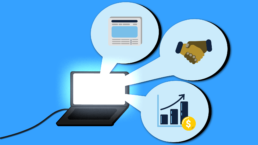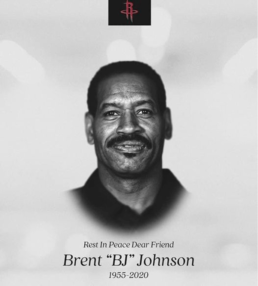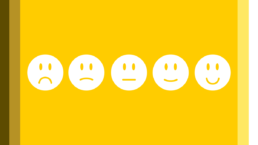5 Ways To Improve Your Digital Marketing Game in 2022
It’s 2022. We live in a digital age. And when every business uses digital channels for marketing — how do you stand out from your competition? How do you catch the eye of your ideal clients or customers in the crowded online space? How do you create authentic messaging that will resonate in all the right ways, translating into super fans and, ultimately, increased revenue?
Start with strategy. By creating purposeful content, you’re five steps ahead of most of your competitors. Here’s how to do it.
A two-pronged approach: build relationships & boost sales
There are so many people doing great work in the world, solving problems & offering creative solutions. There are a few things you can do to help your business stand out from the crowd & help to move your marketing from good to great: use a two-pronged approach to 1) build relationships and 2) boost sales.
Relationships, baby
Nobody loves buying from a business whose only goal is to sell, sell, sell. When you start by building authentic, long-term, loyal relationships with your current and potential customers or clients, you set the tone for future sales. Make them fall in love with your brand, your ethos, and the way you do business. Because we all know that making a single sale feels good — but establishing an ongoing relationship that results in multiple sales is great.
Sell the life transformation (not your product or service)
You can’t focus solely on relationships — you’ve got to sell your services or products, too. Think about problem-solving ahead of dollar signs when it comes to selling. People want to buy a solution. A life transformation. They care about themselves (a lot more than they care about making money for your company). It’s all about positioning. And when you crack the code of how to position your offer, that’s when the magic happens.
5 ways to “up” your digital marketing game
If your digital marketing game isn’t up to par, a complete overhaul can feel daunting. It’s okay to start with baby steps — upgrading one thing at a time — to move toward your goals. By trying one thing at a time, you can test what works best for you and your company — and you’ll have a concrete measurement of success.
Here are 5 things you can do to escalate your digital marketing success.
1. Develop a monthly/quarterly content strategy
Map out buckets of content topics by month or quarter that you’d like to focus on. Organize and build your content strategy into a spreadsheet — and stick to it! Make sure you shoot for a doable volume of work and that you can divide the content into various mediums (more on that later) that can be executed by a pro in that area. Decide who will do what, when, and stay on track. Because having a strategy that you never use is, well, worthless.
2. Create the ultimate buyer’s journey
Many business owners and executives have a blind spot when it comes to their own customers’ journey. When you’re really close to something (i.e. your services, products, or offers), it can be hard to put yourself in a brand new customer’s shoes and decide if the flow of their journey makes sense. Pretend you know nothing about your brand/business. What would a cold lead want to know? How do you explain your offer? Make sure to be clear over clever or cute. Counter their objections. Provide social proof. Make them fall in love with the life transformation you’re selling — from beginning to end of their experience getting to know you/your brand/business.
3. Vary your content medium (social media, blogs, videos, podcasts, etc.)
The human brain gets bored really quickly. They say that we have the attention span of a goldfish — 5 seconds. We like change, variety, and surprises. Make sure you publish content for your digital audience in multiple mediums to keep your audience on their toes and engaged in your content.
4. Focus on customer service
Don’t forget that there’s a human on the other side of every screen. If you rely on automations or AI to service your customers — news flash – they’re going to notice. And chances are…they aren’t going to love it. Be human. Admit mistakes. Be transparent. Offer to fix issues/problems. Just be nice. It’s highly underrated.
5. Assess, tweak, update, and refine your content monthly/quarterly
After you put your digital marketing to work — make sure you don’t “set it and forget about it.” Ads, websites, blogs, emails, videos, podcasts all need to be tweaked, updated, and refined from time to time. Make sure you’re staying relevant — and conscious of current events and how your marketing might land on certain groups during certain times. Make a plan to review and optimize existing content plans at least bi-annually, if not quarterly. It’s surprising how quickly things can become outdated or appear (even if unintentionally) offensive.
Digital marketing is here to stay. And if you’re looking for ways to improve your digital marketing — you’re already ahead of the game! Remember to start with strategy and build from there. Keep your audience at the forefront of your positioning & language. Whenever possible, put yourself in their shoes and see if your offers resonate with someone unfamiliar with what you do.
Lindsay Hope is a copywriter and marketing strategist with CoPeace. As a forward-thinking holding company, CoPeace is building a portfolio of carefully selected for-profit companies with measurable social and environmental impact. To learn more about impact investing, check out CoPeace’s Intro to Impact Investing.
Cows, Colleges, and Contentment… and Capitalism

I have always been intrigued by the concept and study of contentment and happiness. Northfield, Minnesota’s slogan of “Cows, Colleges and Contentment” lured me in when I was looking at undergraduate schools – it was a sunny day at Carleton College when I visited in the summer of 1982. I am pretty sure that under my college yearbook picture (book was recycled in our last “lighten the load” purge before we recently moved, so I can’t verify), my stated future goal in life was “contentment.” In our divisive times, it feels like we all might benefit from added scientific wisdom on the topic…
A recent article, “Things That Will Make You Happier Than Winning the Lottery,” piqued my interest. In it, Harvard Professor Sanjiv Chopra explores the research and findings. It turns out that money truly does not buy happiness – people who win the lottery lose the excitement soon after: “The research shows that at the end of a year, they’re back to baseline. Some are less happy,” Chopra says.
Chopra also shares Three Keys to being happier people: Purpose (Dharma), Giving, and Gratitude. The findings resonate with me and feel consistent with the hopeful themes of the season!
It is interesting, then, how important having access to the right amount of capital enables Chopra’s three keys. It is difficult to serve your purpose, give, or express appropriate gratitude if you don’t have the funds to do the work.
ESG-driven impact investors attempt to strike a similar balance. Creating inclusive, socially impactful wealth for all people is not possible without the wherewithal to take meaningful steps forward.
The good news is that the purpose-based recipe is working for a new brand of responsible capitalism. The need for evolved ESG-driven models continues to grow, supporting companies actively doing the important work of our time: purposefully helping solve the climate emergency, giving alternative buckets of capital that support entrepreneurs in disadvantaged communities, and expressing gratitude through paying fair and equitable wages.
At Carleton, I was privileged to get to know Paul Wellstone in a unique way. Before he served as the Senator from Minnesota, he taught Political Science at Carleton. He was a huge sports fan and former college athlete. We would share a beer (or 2) at Sayles Hill after basketball games – it was a different time and our interpretation post-game carbo loading seemed encouraged… He would always have some interesting perspectives on our strategy and approach. He usually thought we could pressure the ball more on defense and rebound with more effort (he was right – you can always play harder).
As Senator, Wellstone became famous as a voice for communities that had not been well served by the status quo. He was known for the maxim, “We all do better when we all do better.” He believed capitalism had a deep responsibility to be more inclusive while promoting innovation and allowing all entrepreneurs the opportunity to thrive in its competitive marketplace.
The late Senator would approve of the ESG-driven impact investing movement. Howard Buffett, Warren’s grandson, recently tweeted about how the ESG-driven movement needs to be intentional about its growth, and strive for more uniform measurements that all can understand.
Young people are driving the change. Students are demanding change. One of the interesting things about the juxtaposition of colleges and capitalism is that the wealth gap we see in individuals is exaggerated in the university setting between the wealthy and less advantaged schools. For the more elite schools, college endowments have grown with strong returns. The less advantaged schools are in danger of shutting down. Students are seeking transparency and demanding more alignment with the Environmental, Social and Governmental goals of the ESG movement. Chopra’s own school has bowed under student pressure and has announced they will be changing the way they measure returns in a more inclusive way – the good news for Harvard is that ESG-driven business is growing and showing excellent returns.
For me, as I have matured, I know a more inclusive capitalism will lead to a better, more contented world. We need all the help we can get on that front. And, from one of the learnings from our sports world experience, we can’t let perfect be the enemy of the good as we take direct action. Significant capital and innovative models are leading the change, and it is OK to take one step at a time.
I am grateful that we still have some time, however limited, to give our duty some hope.
Craig Jonas is the CEO and founder of CoPeace. As a forward-thinking holding company, CoPeace is building a portfolio of carefully selected for-profit companies with measurable social and environmental impact. To learn more about impact investing, check out CoPeace’s Intro to Impact Investing.
Athletes Are Using Their Brands and Platforms to Effect Positive Change
Shortly before he died, U.S. Rep. and civil rights icon John Lewis said athletes are the new civil rights warriors.
“They have a great deal of influence,” said Lewis of athletes. “Sometimes history and fate just brings things together. And I think that is happening now.”
For decades, many athletes have started foundations and been active in various philanthropic projects. Recently, several athletes have found another way to make the world a better place: impact investing.
Chris Paul of the Phoenix Suns has been one of the most active impact investors. He was frustrated that his pure philanthropic efforts weren’t making the societal impact he was hoping for. He believes “philanthropy can be frustrating” at times.
Paul is one of several athletes, including tennis star Andre Agassi and basketball Hall of Famer Magic Johnson, who have invested in the Turner Multifamily Impact Fund, a type of private-equity fund focused on preserving affordable housing. Other investors in the fund include hedge fund billionaire Bill Ackman, the Rockefeller Brothers Fund, and actress Eva Longoria.
Paul has also joined fellow athletes Dwyane Wade and Carmelo Anthony in starting The Social Change Fund, which was created to help accelerate social change in communities of color and sustainably build a fair, equitable society. Some significant companies, including Goldman Sachs, are early investors in this fund.
Paul has also joined with fellow NBA players Kyrie Irving and DeAndre Jordan to make significant investments in Beyond Meat, a plant-based food company. Beyond Meat founder and CEO Ethan Brown says Paul’s “willingness to use his platform to make a difference is something that’s been evident to me from the very beginning of our relationship.”
An increasing number of today’s more socially-aware athletes are expecting their investments to lead to meaningful societal progress towards positive environmental, social and governance (ESG) outcomes – and they are willing to help lead the way.
At CoPeace Sport we help athletes (and coaches and sport organizations) maximize their ability to positively impact society. One of the tools we use is VIBE™ (Valuation of Impact Brand Equity), a proprietary tool designed to place a value on an athlete’s positive impact on society (e.g., efforts to address social and environmental problems).
An athlete’s VIBE™ score is only one aspect of his/her brand, but it can significantly impact an athlete’s brand equity as a whole. The VIBE™ score is based on publicly available information regarding an athlete’s socio-cultural and environmental impact on society, for example, ESG investments, impact activities on global/societal issues, philanthropic work, endorsements, athlete-produced content via traditional and social media, etc.
Impact investing has positively impacted the VIBE™ scores of the NBA players mentioned in this blog. The following are the players’ VIBE™ scores and their overall VIBE™ ranking among NBA players:

Paul has embraced impact investing because he likes the idea of positively impacting people and the planet while also earning a competitive financial return.
“That’s the fuel we need to bring in investors and reach even more communities and families,” says Paul. “When you combine a positive financial return with positive social impact, you can make a huge difference for people.”
Ken Reed is a Senior Communications Advisor at CoPeace. As a forward-thinking holding company, CoPeace is building a portfolio of carefully selected for-profit companies with measurable social and environmental impact. To learn more about impact investing, check out CoPeace’s Intro to Impact Investing.
What Google’s Cha-Cha-Changes Mean for Online Marketers
The line between privacy and personalization often gets blurred in the vast space of the internet. If you’re not sure how this affects you… then you’re probably not paying close enough attention. Knowledge is power when it comes to how you approach making decisions about your online presence. Get educated to make informed decisions regarding how you choose to conduct business (and personal work) online.
In 2021, Adults (and many kids) = Online Constantly
31% of U.S. adults are ‘almost constantly’ online, according to 2021 research from Pew Research Center. It’s not surprising; it’s so easily accessible. 85% of adults own a smartphone, spanning a wide range of demographic groups. And about ¾ of U.S. adults own a desktop or laptop computer. As remote work has increased during and post-pandemic life, virtual meetings and schooling are the norm, and lockdowns and social distancing have meant more time in front of screens and less time in face-to-face interactions. According to a recent article in Forbes, global online content consumption doubled in 2020 — raising the average daily time spent online for people in the U.S. to 6 hours and 59 minutes. If that’s the average, think how many people are spending more time online than that.
Are You In Control Of What You See Online?
While you might think you’re in total control of what you see while you’re on the internet, nothing could be farther from the truth. ‘Bots’ are watching your every move, tailoring content to what they think you’ll prefer to keep you glued to your screens for longer and longer periods of time. When you’re watching videos, your preferences are tracked so that the next batch of recommendations feels like it was selected just for you. When you’re shopping online, retailers track what stores, styles, and brands you love — so they can sell you more of what you like — and are likely to buy. Have you noticed how that website you looked at last week starts appearing in ads in all of your feeds? It’s no accident. They’re tracking you.
There are two sides to how this tracking-your-every-move may feel for you. Either it’s scary to think that the algorithms know what you’re doing, or it’s beneficial — because you see personalized ads that are relevant to you, not ads for products and services that are meaningless.
The Social Dilemma
If you didn’t realize the extent of personalized content following you around the internet, watch The 2020 documentary The Social Dilemma. This film makes it abundantly clear how powerful what we see on the internet can be. (And it’s pretty frightening, to be honest.)
The Social Dilemma shows prime examples of the evil side of the internet and how tech companies can affect the public. They didn’t intend for their powers to be used how it has, but alas, it’s too late. According to Wikipedia, the film shows how social media can “nurture addictions, manipulate people and governments, and spread conspiracy theories and misinformation.” Interviews with previous executives of Facebook, Google, Twitter, Mozilla, and YouTube shed new light on their platforms’ power and their experiences working for these companies. They explain how unintentionally — then uncontrollably — many social media channels have caused negative and problematic consequences. Many of them share that they won’t allow their own children to use social media. That alone is… shocking.
But, here’s the thing. For marketers who rely on using ads in social media platforms to reach their audience to build their brands and grow their revenue, targeting specific audiences to sell their products and services is nothing short of a godsend. By sending their marketing messages to people who (they believe) actually want to see them, their ad spend is well justified. And it’s lower than it would be if they were blasting ads to anyone and everyone on the internet, not knowing who would see them.
Cookies — What Are They And Why Should You Care?
Cookies are tiny text files that websites you visit place on your browser. When you visit websites, cookies remember your preferences, login details, products you like, etc. even after you leave the site. This data is used to target advertising to you that you “want” to see. And because targeted ads work (people enjoy personalized experiences when they’re browsing), marketers are mostly supportive of Google’s third-party cookies. (Third-party cookie comes from a domain other than the one you’re visiting.) However, the personalized experience teeters on the line of whether or not it’s too invasive of user privacy, so changes are coming down the pike.
Google’s Cookie Ban Is Coming
In an effort to increase privacy, in 2022, Google is planning to significantly — or entirely — reduce the number of third-party cookies to protect internet users from ads they don’t want to see. Known as the backbone of programmatic advertising for over a decade, the loss of third-party cookies will mean that marketers will need to re-think their strategies. Digital advertisers will have a harder time delivering personalized experiences, relevant content, and trusted human connections, according to Litmus.
What Should Marketers Do Next?
Since reliance on third-party cookies will not be an option next year, focusing on other marketing channels should be a top priority. First-party data — cookies created by the host domain — are still considered good. Email marketing is a channel that delivers a stellar ROI. Email is one of the most effective, high-performing channels because you own your email list — once people subscribe to hear from you, they’ve given you permission to land in their inboxes. You can decide what messages to send them and how often to communicate — without the fear that an algorithm or outside force will affect your strategy — because it never will.
Google’s cookie ban won’t be the only change in how to do business we see in the post-pandemic world. So, over the next 12 months, anyone who uses the internet to find, nurture, and acquire business (cue: everyone!) should consider updating their strategies, build resilience, and take advantage of new opportunities, and think outside the box for growth.
Lindsay Hope is a copywriter and marketing strategist with CoPeace. As a forward-thinking holding company, CoPeace is building a portfolio of carefully selected for-profit companies with measurable social and environmental impact. To learn more about impact investing, check out CoPeace’s Intro to Impact Investing.
Giving Gifts with Purpose

Happy Holidays!
December is a special month, and we have so many holidays to celebrate in December. We have Hannukah, Christmas, and Kwanzaa. All these festivals believe in peace, joy, and unity all over the world. With all the craziness going on in the world currently, these holidays are awaited so eagerly.
With holidays comes the gift-giving. We need to be mindful of giving gifts to our loved ones. Sometimes, the gifts we give are returned or not liked. A unique and different way of gifting is financial gift-giving, which includes contributing to college costs, giving charities, cash, stock and impact investing.
Gift as Stock
Many parents and grandparents like the idea of ushering their children or grandchildren down the path of financial literacy and financial responsibility. Giving kids a financial gift starts the conversation of how much to spend on something for myself, how much to save toward a major goal, and how much to share with others in need. You can give by purchasing stocks, bonds, mutual funds, or ETFs as a holiday gift to children. It helps if the stocks are in companies, such as Apple, Disney, or Facebook, that they know, understand, and get excited about. Stockpile is one such company which allows you to buy gift cards that recipients can redeem for fractional shares of stock in over 1,000 companies and ETFs.
College Savings
If you have younger children on your list this year, but you still want to give the gift of education, look into opening a 529 plan or contributing to an existing account. These are tax-advantaged accounts specifically designed to help families save for education costs.
Student loan debt
While saving for college can make a great gift, paying off student loan debt is also a worthwhile approach to holiday giving. There is company called Gift of College which has its gift cards available to make the payments for the student loans.
Job skills
Help your friends and family sharpen their skills or expand their knowledge base this holiday season. You never know; it could lead to a promotion or a better paying job in the new year. Online learning websites like Udemy, Coursera, and LinkedIn Learning provide gift certificates to offer someone to take courses.
Charity as a gift
The season of giving is upon us, and this year especially, the need is great. Consider giving a donation or making a charity as a gift this year — it’s a great way to give back to others. It also demonstrates how well we know our loved ones by supporting the causes they care about. In addition to charitable giving being a rewarding experience, it comes with tax benefits.
Impact Investing
If you’re currently assessing your budget and have extra dollars you’d like to spend this year investing in your family’s future…Or if you’re looking for a fresh, new idea for how to spend your EOY budget allocation for investments…
Right now *might* just be the perfect opportunity for you to invest in CoPeace before the end of the year. Investing now is an opportunity to use your dollars for good — by supporting causes you care about and earning financial returns.
I believe, there are so many ways to make gift-giving in a real sense meaningful and purposeful.
Aarti Karnik is the Director of Web Development with CoPeace. As a forward-thinking holding company, CoPeace is building a portfolio of carefully selected for-profit companies with measurable social and environmental impact. To learn more about impact investing, check out CoPeace’s Intro to Impact Investing.
Tears for Tears

The tears in our cultural fabric are deep. We are torn and divided. We have little common ground. Do we give up? Eat more cheese? Stay on the couch? Invest in Chevron?
The challenges in front of us are real and consequential. The U.S. election season highlighted the current schism in our world and exposed the inequalities in front of us all:
- There are no easy solutions for the CoVID-19 pandemic. People are sick and people are dying. My 26-year-old son spent a night in the ER and my sister-in-law’s father died last week. The virus is scary and real.
- The struggle for racial justice has been deeply exposed through our current divisions.
- The climate crisis does not give us much time to get our act together.
These bullets are overwhelming. The key is to work to find possible solutions and create a plan of action, and then act. We can solve problems by attacking them head on, incrementally.
The ancient Chinese philosopher Lao Tzu taught that there is your way, my way, and the way of truth. We need to separate people from the problem and focus on the common ground that is the truth:
- I know it is obvious, but science and data must lead the solutions for the pandemic. My wife is a nurse and she is encountering CoVID-19 patients. Because she and the nurse-doctor team take it seriously, wear their PPE, wash their hands, and keep physically as distant as possible (not that easy when giving shots, etc.), nobody on her team has contracted the virus. Business and school can be conducted if it is done very carefully. Follow the data to open safely.
- We all need to recognize the racist past of our world and be honest about how it has created systems of inequality. We share this past. Actively creating new systems, and businesses, that change the access and opportunities for disadvantaged communities provides multiple pathways to change. Diversity does make us stronger. Fixing would help (here is one proposal driven by data). Support companies like FreeCap.
- The climate crisis is real. While the clock is ticking, there are solutions that are creating change and opportunity. It ends up being a good business decision to care about the long-term future of our world (I know I say that often). Watch David Attenborough: A Life On Our Planet. Support companies like Uncharted Power.
It is a difficult time to write a blog – to recognize the real challenges, while simultaneously seeking common ground – and authentically demonstrating optimism for a brighter future.
But we do share so much as one human race. We can be together. We do have the agency to affect positive change. Our common bond is a better collective future. Drink more water. Move with purpose. Invest in impact. Invest in Change Finance.
Allow tears of joy to flow and to start healing the deep tears. Seek solutions to the problems and find common ground to move forward. I am.
Craig Jonas is the CEO and founder of CoPeace. As a forward-thinking holding company, CoPeace is building a portfolio of carefully selected for-profit companies with measurable social and environmental impact. To learn more about impact investing, check out CoPeace’s Intro to Impact Investing.
Make a Difference Day
Saturday, Oct. 24, marks the 28th National Make a Difference Day, the largest national day of community service.
Here at CoPeace, it may truly be the reason we exist today. It’s when we individually reached a point in our careers, and focused on a greater cause, and committed to make an impact, that our impact-driven company, CoPeace, was born.
As we sit with our brothers and sisters from around the world in a pandemic these past seven months, we see homelessness, divisiveness, hunger and climate crisis all around us. It’s been the most dire of times for so many of us, I’m not sure if there has ever been a more needed time for community than now.
Making a difference can take many different forms. One can make a difference by checking in on the elderly, or collecting cans for a food pantry, or picking up litter. There are many volunteer opportunities and acts to help mitigate the planet’s bigger issues such as plastic waste, greenhouse gas emissions, and water scarcity.
The local chapters of United Way have done an incredible job within their local communities, mobilizing to different causes.
Even the smallest of efforts can change a community and subsequently the world.
The Aspen Strategy Group is leading an effort to establish a National Service. A non-political program to bring “community” back, front and center, providing jobs and assistance where it’s most needed. A program that could help working parents teach STEM to under-privileged communities and close the opportunity gap.
When I think of the power and intention of this day, I can’t help but think of my recently departed friend Brent Johnson. B.J. was a scout for the Houston Rockets and a pillar in the basketball industry.
B.J. had an infectious smile and made time for everyone around him. He was the ultimate giving person.
His impact was felt by all he touched. To aspiring basketball players, he encouraged them; to community members, he welcomed them and shared; to industry colleagues, he treated them with respect.
He made sure you knew that you were valued by him. His character was exemplary. All of his days on Earth were like how I lived my best day as a person.
You may know what I am talking about. That one day, when I was my absolute best as a human being, when I was able to put everything aside, and do something absolutely selfless. Something that afterwards I would literally glow, basking from it. That’s how B.J. was every day.
I think we all know someone like that. Someone that was or is such a special soul that makes everything around them better. We marvel at them and it motivates us to be better versions of ourselves.
Saturday, Oct. 24 is our opportunity to do as B.J. would do. An opportunity to be selfless and be our best versions of ourselves for National Make A Difference Day. Please join me!
Leigh Klein formerly worked as the Director of Sport Strategy at CoPeace. As a forward-thinking holding company, CoPeace is building a portfolio of carefully selected for-profit companies with measurable social and environmental impact. To learn more about impact investing, check out CoPeace’s Intro to Impact Investing.
CoSpo: Changing the World Through Sports
I love sports.
I’ve been involved in sports in one way or another my entire life. I love the competition, the teamwork needed to be successful, the human drama, the camaraderie, the physical fitness aspect, and the lifetime friendships that develop.
But I also love sports because they can bring out the best in humanity. Sports can positively impact the world in ways well beyond the playing fields, courts and ice rinks.
Nelson Mandela said it perfectly, “Sport has the power to change the world, the power to inspire and the power to unite people in a way little else can – it is an instrument for change.”
Sport is certainly a powerful cultural institution, and it can be tapped for good.
“The rituals of sport engage more people in a shared experience than any other institution or cultural activity today,” said author and public policy consultant Varda Burstyn.
Through the years, there has been a lot of excellent philanthropic work done through sports. At CoPeace, we celebrate that fact and encourage it. However, we think there’s tremendous potential to impact the world via sports well beyond the limitations of pure philanthropy.
That’s why we launched CoPeace Sports, or CoSpo, this week. CoSpo is a wholly-owned sports impact subsidiary and is part of the CoPeace holding company portfolio. CoSpo’s mission is to help athletes, coaches and sport organizations maximize their ability to positively impact society.
CoPeace Sports is legally designated as a public benefit LLC (PBLLC). As such, we can help sports entities of all kinds enhance their positive impact activities through both non-profit and for-profit endeavors and activities.
We have a lot of sports-related experience on the CoPeace team. We’ve seen how sports can bring people together in pursuit of a common cause, and we want to leverage that uniting aspect of sport for the good of society.
“Sports is just such a powerful thing,” said Ed Tepper, CoPeace’s chief operating officer. “It taps into the emotions, and we have an incredible opportunity here to use that power and direct it in a positive way that goes far beyond anything philanthropy can do—to create self-sustaining opportunities for companies to do good, help others and make money at the same time.”
CoPeace Sports has been created to be a true win-win endeavor and I’m excited to see the positive impact the company will have as it grows.
Ken Reed is a Senior Communications Advisor at CoPeace. As a forward-thinking holding company, CoPeace is building a portfolio of carefully selected for-profit companies with measurable social and environmental impact. To learn more about impact investing, check out CoPeace’s Intro to Impact Investing.
Sharing Our Message on Positive Thinking Day

Last Sunday (Sept. 13) marked a day that deserves more attention – Positive Thinking Day. Though it is now behind us, we should still reflect on how we can attain a more positive mindset. A positive mindset is a powerful thing. With the right resources, team, and community, this evolves into something even more powerful – positive impact that can transform the world.
CoPeace is a company built on channeling the power of positive thinking into achieving positive impacts on our world. We continue to build an ecosystem of impactful companies providing innovative solutions to the climate crisis and ongoing social injustices. We are fortunate to have a network of like-minded, supportive investors and partners that believe in the CoPeace mission, and we are always looking to include more people in our community!
Positive energy breeds positive energy. As you reflect on this past Positive Thinking Day, how can you share your values within your community to help us all grow?
Jacob Miller is a financial analyst at CoPeace. As a forward-thinking holding company, CoPeace is building a portfolio of carefully selected for-profit companies with measurable social and environmental impact. To learn more about impact investing, check out CoPeace’s Intro to Impact Investing.
“Basic” Education

After changing from my sleep pants to my “work” sweatpants, and right before jumping on the first of what seems like an endless array of video meetings, I had some time to reflect on our recent household “emergency.” My daughter’s computer charger has stopped working.
I’ll spare you the boring details, but it took two very stressful days of watching the battery percentage helplessly drop before we were able to get a new charger. This was an emergency, since my daughter, like a large portion of the children around the world, is going to school remotely and a working computer is required for school education…a computer! Let that sink in.
School supplies used to be a notebook, a pencil, and a book (and an optional Transformers lunch box …if you were cool).
Through this pandemic we have seen a great push for social equality. It has been a problem for so many years and education sits right smack in its center of the issue. The access and quality of education are just a few of the issues that widen the divide in our society. Internet connectivity, a computer, and even electricity are luxuries a lot of us take for granted, and we only see their true value when they are suddenly gone. If you have kids, just trying shutting off your WiFi for five minutes and see your sweet child instantaneously morph into The Incredible Hulk!
As we try and plan for a better future on the other side, we cannot ignore the lessons we learn during the pandemic. We now know what the future will look like, we now know what the future will require from our children to be successful. So that is where we should invest our money.
We should invest in a future where each child has what they need to succeed. This way we not only become a more fair and just society, but we also become a more successful and prosperous society, where bright minds have the right platform to excel and ideas can flourish. This is not only the right thing to do socially, but the right thing to do financially!
At CoPeace we believe in investing in companies who create those platforms and the type of impact that changes generations. We do so, not by being psychic or pretending we know more than anyone else, but by taking note of the world around us and the direction it is heading toward.
Hanan Levin is a Senior Investment Advisor at CoPeace. As a forward-thinking holding company, CoPeace is building a portfolio of carefully selected for-profit companies with measurable social and environmental impact. To learn more about impact investing, check out CoPeace’s Intro to Impact Investing.













